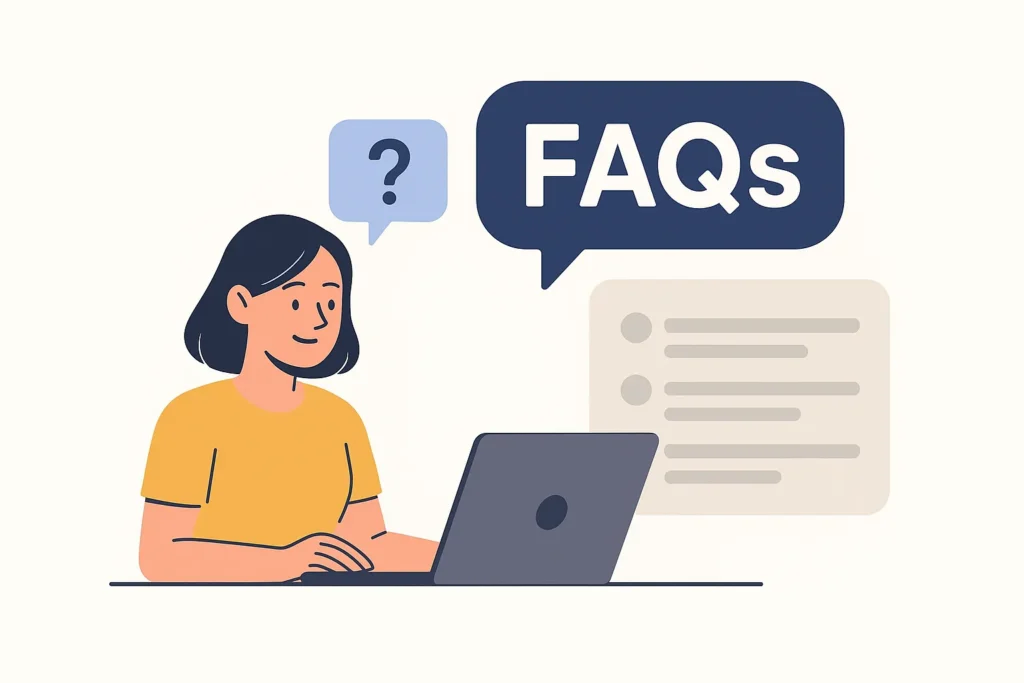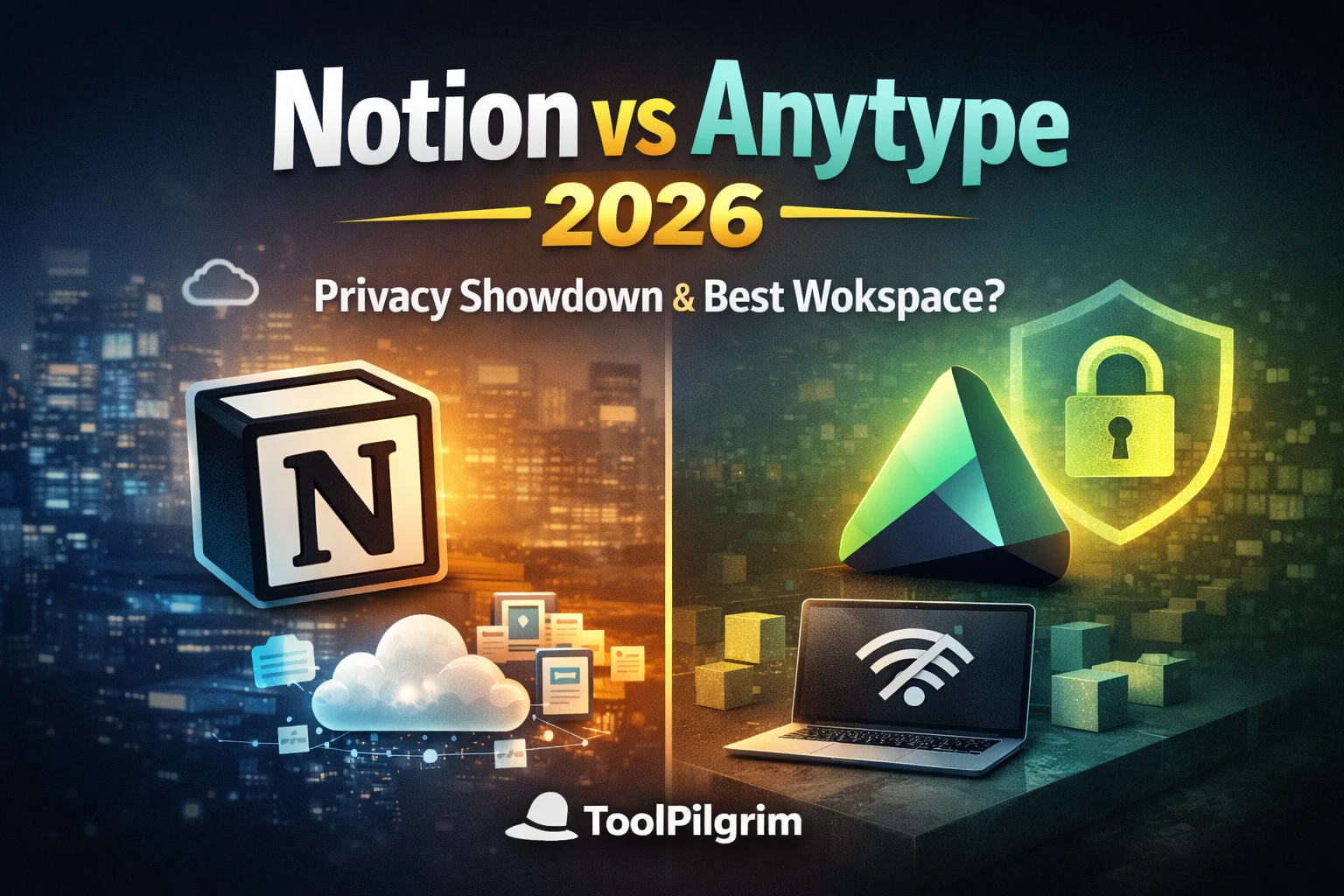Notion vs Anytype (2026): Which Workspace App Truly Wins?
In 2026, the Notion vs Anytype debate is no longer about features alone, but about privacy, ownership, and long-term control.
If you’re trying to build a serious productivity system in 2026, chances are you’re stuck between Notion vs Anytype.
Notion is still the most popular all-in-one workspace on the internet.
But Anytype is no longer just an “alternative” — it’s now a strong, privacy-first movement.
I’ve actively used both tools throughout late 2025 and early 2026. This updated comparison cuts through hype and gives you a real-world verdict based on how these apps actually behave today.
No fluff. No fanboy talk. Just clarity.

🔹 Quick Scorecard: Notion vs Anytype (2026)
✅ 2026 Verdict (Short Version)
| Feature | Notion ⭐ | Anytype 🔒 | Winner |
|---|---|---|---|
| Privacy | Cloud-based | Local-first + encrypted | Anytype |
| Offline Access | Partial, improving | Full offline by default | Anytype |
| Collaboration | Advanced, real-time | Limited (sync-based) | Notion |
| Ease of Use | Very beginner-friendly | Learning curve | Notion |
| Customization | Flexible but cloud-bound | Deep, object-based | Anytype |
| Integrations | Massive ecosystem | Minimal (by design) | Notion |
| Pricing | Free + paid tiers | Free core (2026) | Tie |
- Teams & shared workspaces → Notion
- Solo users, researchers, privacy-focused creators → Anytype
📌 Notion vs Anytype (2026): Quick Takeaway
- Best for Teams: Notion
- Best for Privacy & Ownership: Anytype
- Fastest Offline Performance: Anytype
- Best Integrations & Automation: Notion
- Long-term Knowledge Building: Anytype
This isn’t about which app is “better.”
It’s about which philosophy fits your workflow.
🔍 What Are These Tools Really in 2026?
Notion (2026)
Notion remains a cloud-first productivity OS for notes, tasks, databases, docs, and collaboration.
In 2026, Notion leans heavily into:
- AI-assisted workflows
- Team automation
- Cross-app integrations
It’s powerful—but still internet-dependent.
Anytype (2026)
Anytype has matured into a local-first personal knowledge system.
Think:
“Notion + Obsidian, without selling your data.”
Key identity in 2026:
- Offline by default
- End-to-end encrypted sync
- Object-based thinking (not pages)
- Community-driven, open-source roots
You control the data. Period.
Official sites: Notion • Anytype
Still comparing knowledge management tools? Don’t miss our in-depth breakdown of Notion vs Obsidian to understand how different productivity philosophies compare.
🖥️ Interface & User Experience
Notion still wins on polish.
Everything feels smooth, clean, and instantly usable. Templates make onboarding effortless.
Anytype feels different.
At first, it’s unfamiliar. But once it clicks, you realize it’s built for thinking, not just organizing.
My 2026 take:
- Want instant productivity? → Notion
- Want a long-term “second brain”? → Anytype
🔐 Notion vs Anytype: Privacy & Data Ownership in 2026
This gap has only widened in 2026.
- Notion: Data lives on their servers. Secure, yes — but not yours.
- Anytype: Data lives on your device. Sync is optional. Encryption is default.
With rising concerns around:
- AI training on user data
- Account lockouts
- Platform dependency
Anytype feels like a safe long-term bet.
In the Notion vs Anytype (2026) debate, privacy is no longer a niche concern — it’s mainstream.
🌐 Online vs Offline Reality

Let’s be honest.
- Notion’s offline mode in 2026 is better than before, but still inconsistent.
- Anytype works perfectly without internet. Always has.
If you:
- Travel frequently
- Work in low-connectivity areas
- Want zero cloud dependency
Anytype wins without discussion.
💲 Pricing in 2026
Notion
- Free plan is solid
- Teams and power users still need paid plans
Anytype
- Core features remain free
- Optional paid services (sync, future add-ons) are emerging
- No forced subscriptions for basic use
For solo users, Anytype is still extremely cost-effective.
🔌 Integrations & Ecosystem
This is Notion’s home ground.
- Slack
- Google Calendar
- GitHub
- Zapier
- AI automations
Anytype intentionally avoids heavy integrations.
It’s not trying to be an automation hub — it’s a personal knowledge vault.
If integrations run your workflow → Notion
If focus and ownership matter more → Anytype
🧠 Use Cases: Who Should Use What (2026)
| User Type | Recommended |
|---|---|
| Students | Notion |
| Bloggers | Either |
| Developers | Anytype |
| Researchers | Anytype |
| Privacy Advocates | Anytype |
| Remote Teams | Notion |
| Solo Creators | Anytype |
If you’re using Notion or Anytype mainly for notes and studies, this guide on AI note-taking apps for students will help you choose smarter tools for learning and revision.
🧪 Real-World Performance (2026 Testing)
Anytype feels noticeably faster, especially with large knowledge bases.
No loading spinners. No sync delays.
Notion can lag on:
- Big databases
- Multiple workspaces
- Slow networks
But Notion still shines when managing:
- Shared content calendars
- Team tasks
- Client documentation
The real decision in Notion vs Anytype (2026) comes down to:
Ease today vs control tomorrow
Pairing your workspace with the right writing software matters. Explore our list of best AI writing tools to boost productivity alongside Notion or Anytype.
✅ ToolPilgrim’s Verdict – Notion vs Anytype (2026)
Choose Notion if:
- You work with teams
- You want fast setup
- You rely on integrations and automation
Choose Anytype if:
- Privacy matters to you
- Offline work is essential
- You want long-term ownership of your knowledge
No single winner. Just smarter choices.
Ultimately, the Notion vs Anytype comparison in 2026 reflects a larger shift toward conscious tool selection rather than blind popularity.
🚀 Who’s Innovating Faster in 2026?
- Notion: Expanding AI, enterprise tools, and automation
- Anytype: Redefining personal data ownership and local-first workflows
Two very different futures.
Both worth watching.
👇 My Personal Workflow (2026)
- Anytype: Journaling, research, ideas, personal tasks
- Notion: Team planning, affiliate tracking, shared docs
Best of both worlds.
Want to level up your research workflow? Check out our step-by-step NotebookLM tutorial and combine it with your Notion or Anytype setup.
❓FAQ – Notion vs Anytype

Q: Is Notion better than Anytype for team collaboration?
👉 Yes. Notion is more team-friendly because it offers shared workspaces, real-time comments, task assignments, and smooth integrations. Anytype still focuses more on solo workflows.
Q: Can Anytype replace Notion completely?
👉 For individual users who value privacy and offline access, Anytype can replace Notion. But for teams that rely on advanced integrations, Notion remains the stronger choice.
Q: Which app is more beginner-friendly, Notion or Anytype?
👉 Notion is easier for beginners with its templates and simple drag-and-drop interface. Anytype has a learning curve but provides deeper customization once you get comfortable.
Q: Can Anytype be used completely offline?
👉 Yes. Anytype is designed for offline use, storing all your data locally. You don’t need internet to create, edit, or manage your workspace.
Q: Is Notion free to use in 2025?
👉 Yes. Notion has a free plan with most core features. For larger teams, unlimited storage, and advanced permissions, paid upgrades are available.

1 thought on “Notion vs Anytype (2026): Privacy Showdown & The Best App You Should Actually Use | ToolPilgrim”